As a seasoned grant writing consultant, I’ve been privileged to learn the ropes of this unique, highly-demanding, and satisfying profession over the years. Today, let’s tackle a subject that I frequently encounter: How to get started with your very own grant writing business? To assist you in answering this question, I’ll outline some crucial tasks that will not only help you attract clients but also ensure that revenue starts flowing.
1. Develop a Clear Business Plan
Before anything else, you need a robust business plan. This step involves conducting market research, identifying your target audience (for-profit, non-profit, educational institutions, or government agencies), and creating a detailed roadmap that outlines your business objectives, startup costs, pricing strategy, and marketing plan. It also helps to identify your Unique Selling Proposition (USP) – what makes your services stand out from the competition?
2. Build a Strong Foundation in Grant Writing
Clients want to work with someone who knows their craft. If you’re not already a pro, invest in professional development. Attend grant writing workshops, webinars, and seminars. Acquire certification from reputable organizations like the American Grant Writers’ Association or the Grant Professionals Certification Institute. Also, staying updated with industry trends and guidelines, and knowing where to find grants is crucial.
3. Create a Portfolio
A professional portfolio is a powerful tool for demonstrating your skills, experience, and success in grant writing. If you’re new to the field, consider doing a few pro-bono projects to gain experience and build your portfolio. Showcase your well-crafted grant proposals, letters of inquiry, and the successful grants you’ve written.
4. Develop a Professional Website and Online Presence
In this digital age, having a professional online presence is essential. Your website should detail your services, share your portfolio, and have an easy way for potential clients to contact you. Make sure you have a strong LinkedIn profile and participate in relevant groups. Consider engaging on other social media platforms where your prospective clients may be present, sharing valuable content that showcases your expertise.
5. Network, Network, Network!
Building relationships is critical in the grant writing world. Attend industry events, join professional associations, and engage with potential clients on social media. Reach out to non-profits, schools, businesses, and governmental entities in your area. Don’t overlook the value of your existing contacts, either – word-of-mouth referrals can be incredibly powerful.
6. Leverage Content Marketing
Sharing free, valuable content can position you as an expert in your field. Consider starting a blog about grant writing, sharing tips on finding and securing grants, or creating case studies from your successful projects. This not only demonstrates your expertise but can also help you attract potential clients.
7. Offer Consultations
Offering free initial consultations can be an effective way to attract new clients. This gives you a chance to understand their needs and demonstrate how you can assist them. By showing them you understand their challenges and goals, you’re more likely to convert these consultations into paying projects.
8. Follow Up and Provide Exceptional Service
Once you’ve started working with clients, be sure to deliver exceptional service. Understand their needs, communicate regularly, and meet deadlines. And don’t forget to follow up after a project is complete. A happy client is often a repeat client and a source of referrals.
Starting a grant writing business requires a blend of technical expertise, marketing savvy, and plenty of determination. However, with these high-impact tasks in mind, you’re well on your way to building a successful venture. Remember, your first client is out there right now looking for your services – go out there and make your mark!






